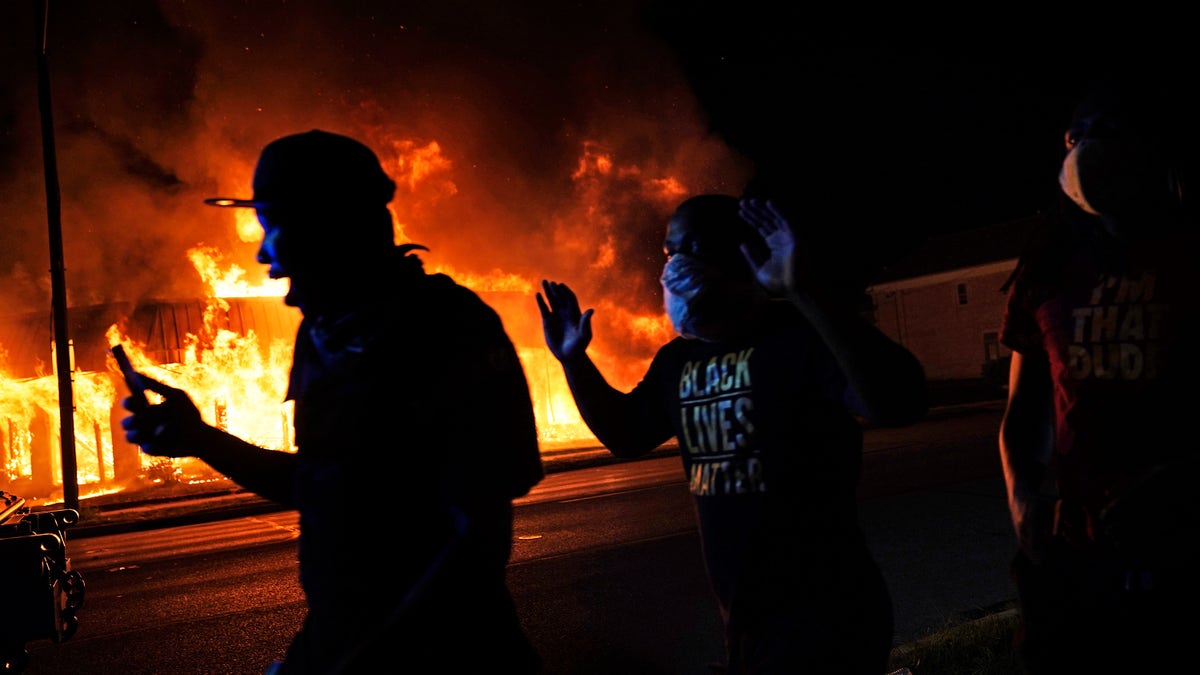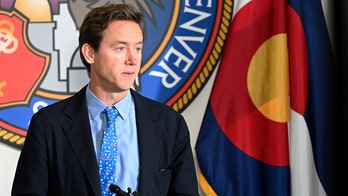Fox News Flash top headlines for May 24
Fox News Flash top headlines are here. Check out what's clicking on Foxnews.com.
It was one of the biggest campaign questions last summer amid the heat of the 2020 White House race — how would the nationwide protests over police brutality against minorities and racial inequity impact the presidential showdown between then-incumbent Republican Donald Trump and Democratic challenger Joe Biden?
Most studies and analysis of the demonstrations, sparked in part by the death in late spring of last year of Black man George Floyd in Minnesota at the hands of police, suggest that now-President Biden’s lead over Trump grew in areas where many of the protests occurred.
HOUSE DEMS 2020 AUTOPSY PARTIALLY BLAMES GOP ATTACKS OVER ‘DEFUND THE POLICE’ FOR ELECTION SETBACKS
But a new analysis of election results in Kenosha, Wisconsin by The Economist suggests that when the protests turned violent, Trump and the Republicans benefited at the ballot box.

Protesters walk past police with their arms up, late Monday, Aug. 24, 2020, in Kenosha, Wis., as a building burns in the background. Protests have erupted following the police shooting of Jacob Blake a day earlier. (AP Photo/David Goldman)
The city grabbed national attention last August after Jacob Blake, a Black man, was shot by police, sparking violent streets protests including the looting of stores and the burning of buildings. In the following weeks, both Trump and Biden made separate stops in Kenosha.
CLICK HERE TO GET THE FOX NEWS APP
The Economist noted that within a 30-mile radius of Kenosha, Biden’s vote share lagged compared to predicted votes. While he narrowly won the crucial battleground state, Biden was edged by Trump in Kenosha County.
"The president's weak showing in Kenosha could have been caused by something besides the protests. But the most likely interpretation is that when frustration with the police boils over into lawless demonstrations, the party seeking changes to policing tends to pay an electoral price," The Economist noted.





